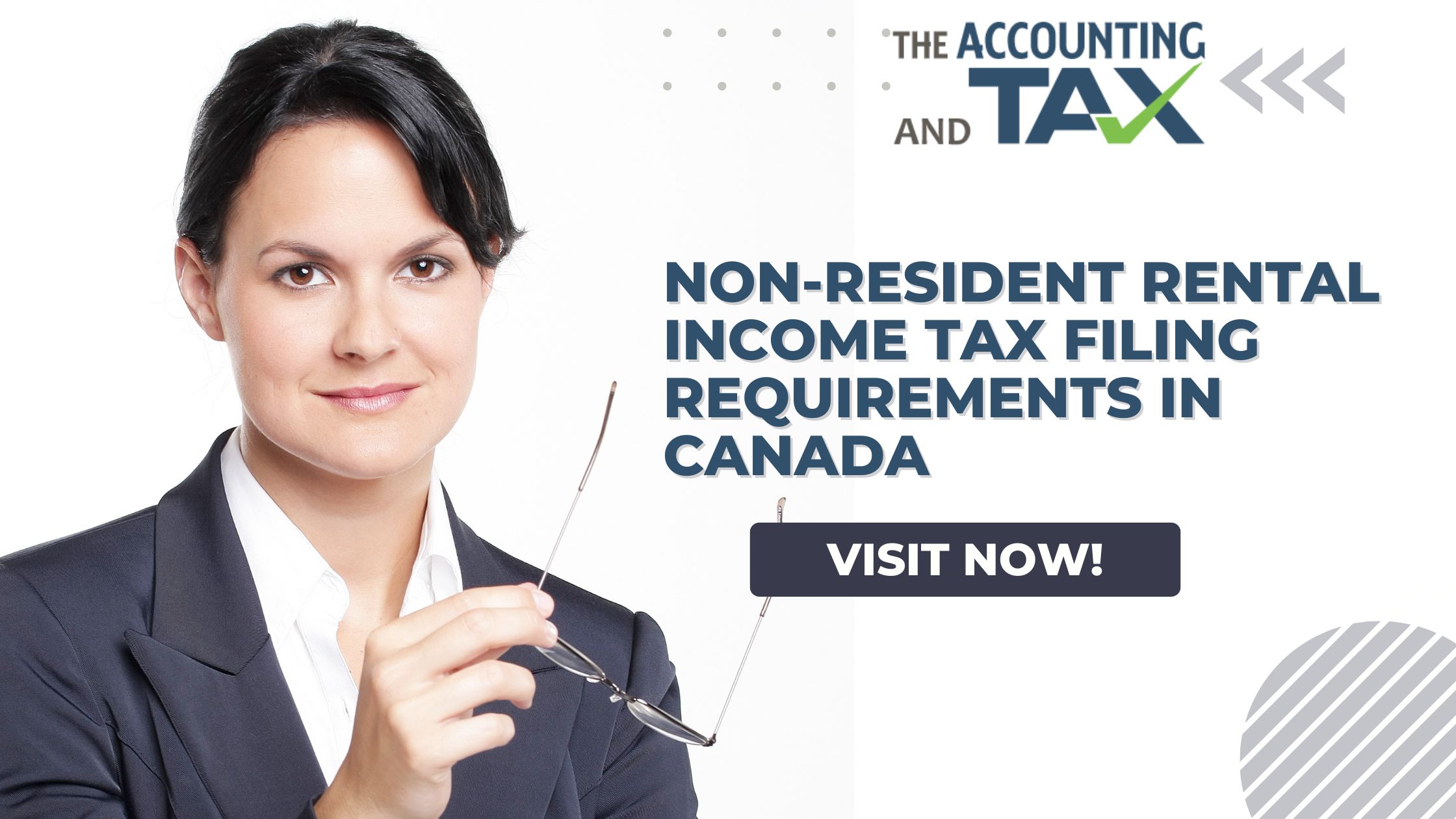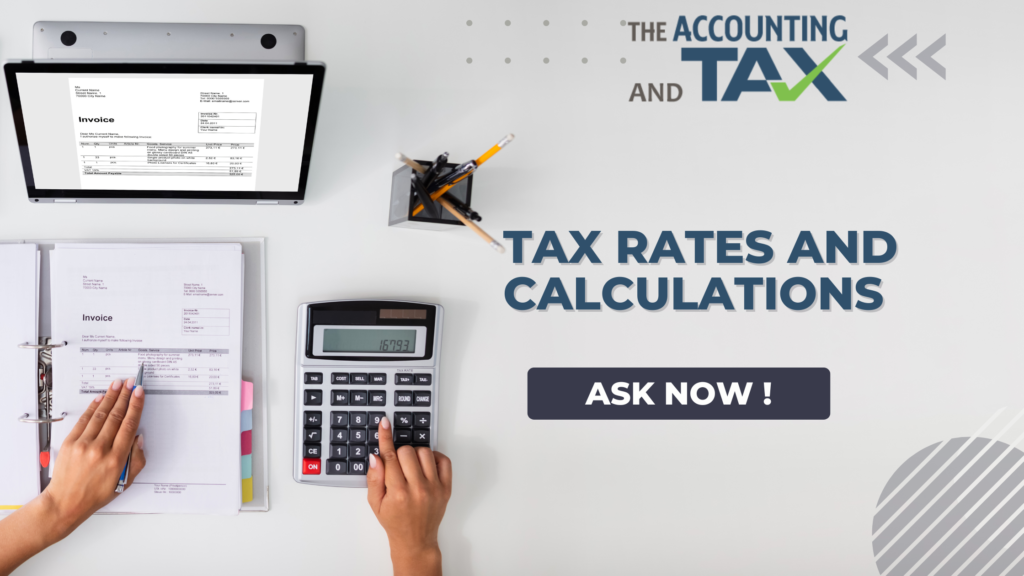
Non-resident rental income tax filing requirements in Canada
If you are a non-resident of Canada who earns rental income from property in Canada, you may have to file a Canadian income tax return to report that rental income. This blog post will provide a comprehensive overview of the tax filing requirements for non-residents with Canadian rental income, including who has to file a return, what income to report, allowable deductions and credits, tax rates and calculations, withholding tax obligations, and how to file the tax return. We will also briefly touch on rental losses and capital gains from selling rental property as a non-resident.
Who Has to File a Tax Return?
As a non-resident of Canada, you must file a Canadian tax return if you earned rental income from property in Canada in the previous tax year. This applies whether you are living in another country or are a deemed non-resident for tax purposes.
Some examples of rental income you would have to declare to the Canada Revenue Agency (CRA) include:
- Rent collected from tenants occupying your residential rental property in Canada
- Commercial property lease payments from business tenants
- Income from short-term vacation property rentals
- License fees or other rental-type payments
So in summary, if you own real estate or other property in Canada that generates rental or leasing income, you likely have to file a Canadian non-resident tax return to report this income.
What Rental Income to Report?
On your non-resident tax return, you must report the gross rental income collected before deducting any expenses. This includes all rental payments received from tenants during the tax year.
Specifically, the following types of rental income have to be declared:
- All base rent paid by tenants
- Laundry or storage fees
- Parking rental fees
- Furniture rental charges
- Any other amounts tenants pay in relation to occupying the rental unit
If you rented out property for part of the year, pro-rate the rental income for the number of months it was occupied or available for rent.
You also have to report any taxable capital gains realized from the sale of Canadian rental property in a given tax year. We’ll provide more details on this later.
Allowable Deductions and Credits
The main deductions non-residents can claim against Canadian rental income relate to expenses for earning that income and certain tax credits. Key deductions and credits to note are:
Rental Expenses: Any reasonable expenses incurred for earning the rental income can be deducted against that income, reducing your taxable rental income. Common rental property expenses include mortgage interest, property taxes, insurance premiums, maintenance and repairs, agent commissions for finding tenants, and advertising vacant units for lease. Capital expenses cannot be deducted upfront in most cases.
Generally you can deduct reasonable travel expenses related to maintaining your Canadian rental property and CRA considers up to two trips per year reasonable.
Property Taxes and Mortgage Interest: Out of all expenses, property taxes and mortgage loan interest are limited to a deduction equal to your net rental income. So even if property taxes or interest paid exceed the rental income, the maximum deduction you can claim against rental income would equal the amount of that rental income. Any excess amounts simply do not get deducted.
Other Deductions: You can deduct mandatory contributions to Canadian pension plans related to rental income. RRSP contributions would not apply to non-residents.
Federal Foreign Tax Credit: Where the same rental income was taxed in Canada and your country of residence, you may be eligible for a federal foreign tax credit in Canada for income taxes paid to the other country.
Net Rental Losses: If allowable deductions and credits reduce your net rental income to zero, meaning expenses were greater than rents collected, you can have a “net rental loss”. For non-residents, rental losses can be carried forward and applied against net rental income in future tax years to reduce taxes then. The rental loss cannot be claimed as a deduction against other income.

Tax Rates and Calculations
As a non-resident of Canada, rental income you earn is generally subject to a 25% flat tax rate to the federal Canadian government. Some exceptions apply, as below:
Tax Treaties: If there is a tax treaty between Canada and your country of residence, the treaty may specify a reduced rate of withholding tax on rental income. Common treaty countries include the United States and the United Kingdom.
Business Income Election: Where substantial services are provided in operating rented commercial property, you may be able to elect to have the rental income taxed as “business income” instead of the default passive “investment income”. Business income taxation carries potential federal and provincial taxes generally between 25% to 31% depending on the province.
The greater of 25% or reduced treaty tax rates are charged on gross rental income collected. Then allowable deductions can be claimed to calculate net rental income subject to this tax according to the formula:
Gross Annual Rents Received
Less: Allowable Deductions (interest, property tax, maintenance, etc.)
= Net Rental Income
Net Rental Income x Tax Rate (25% or reduced treaty/business income rate) = Income Tax Payable
So if for example gross rent collected on a residential property was $60,000 for the year less $25,000 in deductible expenses = $35,000 Net Rental Income. At the 25% tax rate, income tax payable would calculate as $35,000 x 25% = $8,750 owing to the CRA.
Withholding Tax Requirements
When Canadian rental income is paid or credited to a non-resident in another country, the tenant (payer) is required to withhold tax from each payment and remit this to the Canada Revenue Agency (CRA) on the non-resident’s behalf. In this case, the tenants or property manager would need to withhold tax at the 25% rate (or reduced tax treaty rate if applicable).
Alternatively, instead of having tenants withhold and submit tax, the CRA may authorize the non-resident landlord to file an annual Canadian income tax return and pay taxes directly themselves by instalments. This method avoids tenants having to withhold each payment. Approval from CRA is required on a case-by-case basis for the non-resident to report/pay annually themselves and this places liability on the non-resident to pay the tax due.
If neither withholding nor annual instalments by the non-resident landlord are exercised, penalties and interest charges apply from CRA. So ensuring taxes owing get paid either way is very important.
How to File Canadian Tax Returns
To file Canadian tax returns, non-residents have two options – traditional paper filing by mail or electronic filing by internet:
Paper filing: Non-residents complete federal T1 tax packages along with related rental forms like the T776 Statement of Real Estate Rentals. Signed paper returns are then mailed to the CRA International Tax Services Office. International Tax Packages to file Canadian non-resident tax returns can be found on the CRA website or obtained by contacting CRA International Tax Services.
Netfile: Alternatively, CRA offers the Netfile system for non-residents to file tax returns securely online. Netfile allows non-residents to file the same T1 personal tax return and schedules electronically over the internet. Netfile automatically calculates federal and provincial taxes owing.
For non-residents to file through Netfile, the tax return must be prepared and submitted by an Electronic Filers Group (EFG) representative or tax preparer certified to use CRA’s EFILE system. So you would need to select an accounting firm familiar with this electronic filing for non-resident returns.
Selling Rental Property
If non-resident landlords sell their Canadian rental property, tax applies differently whether classified as capital property or inventory. Assuming most residential rental real estate is held on capital account, let’s focus on that:
When a non-resident sells rental property classified as capital property in Canada, the gain/loss on sale is treated as capital gain/loss for tax purposes. Only half of any capital gain realized is included in taxable income and taxed. Whereas a capital loss cannot be claimed against rental income but may be applied against taxable capital gains in other years.
The purchaser of the rental property from a non-resident must withhold tax on 25% of the estimated capital gain at time of sale and remit this withholding tax to CRA (unless a reduced tax treaty rate applies). The non-resident then declares the gain in the tax year of sale on their Canadian non-resident tax return and deductions can then be claimed against the gain to determine taxes owed. If overpaid through withholding at sale, CRA issues tax refund.
Summary
In summary, non-residents earning rental income from properties in Canada must report this income and pay taxes in Canada, subject to various nuances on deductions, withholding requirements, and tax treaty provisions.
Carefully maintaining records of rental income and related operating expenses and being tax compliant in Canada is key. Non-resident landlords can file annually themselves if approved by CRA or have tenants or a property manager withhold and remit taxes otherwise.
Determining deductible expenses available to non-residents versus residents, managing any net rental losses for carryforward, watching for capital gain/loss on sale of rental properties, and taking advantage of applicable tax treaties/lower business income rates all represent important tax planning considerations as well for non-residents with Canadian real estate investments.
